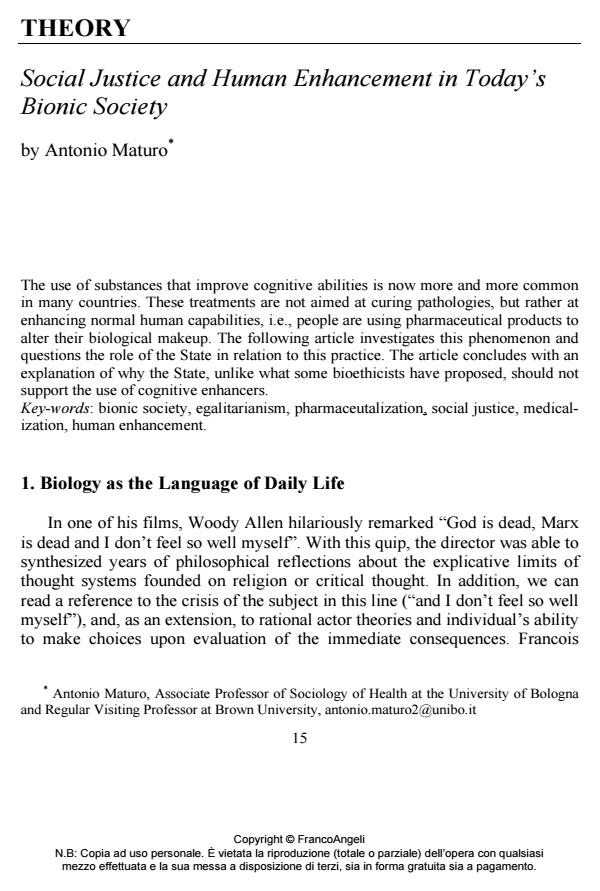Social Justice and Human Enhancement in Today’s Bionic Society
Journal title SALUTE E SOCIETÀ
Author/s Antonio Maturo
Publishing Year 2013 Issue 2012/Suppl. 2EN Language English
Pages 16 P. 15-30 File size 226 KB
DOI 10.3280/SES2012-SU2003EN
DOI is like a bar code for intellectual property: to have more infomation
click here
Below, you can see the article first page
If you want to buy this article in PDF format, you can do it, following the instructions to buy download credits

FrancoAngeli is member of Publishers International Linking Association, Inc (PILA), a not-for-profit association which run the CrossRef service enabling links to and from online scholarly content.
The use of substances that improve cognitive abilities is now more and more common in many countries. These treatments are not aimed at curing pathologies, but rather at enhancing normal human capabilities, i.e., people are using pharmaceutical products to alter their biological makeup. The following article investigates this phenomenon and questions the role of the State in relation to this practice. The article concludes with an explanation of why the State, unlike what some bioethicists have proposed, should not support the use of cognitive enhancers.
Keywords: Bionic society, egalitarianism, pharmaceutalization, social justice, medicalization, human enhancement.
- Analysis of North American Newspaper Coverage of Bionics Using the Disability Studies Framework Sonum Panesar, Gregor Wolbring, in Technologies /2014 pp.1
DOI: 10.3390/technologies2010001 - M-Health e Quantified Self: sviluppi, potenzialità e rischi Antonio Maturo, in SALUTE E SOCIETÀ 3/2014 pp.161
DOI: 10.3280/SES2014-003012 - Social Justice Theories as the Basis for Public Policy on Psychopharmacological
Cognitive Enhancement Astrid M. Elfferich, in Canadian Journal of Bioethics /2021 pp.126
DOI: 10.7202/1077629ar
Antonio Maturo, Social Justice and Human Enhancement in Today’s Bionic Society in "SALUTE E SOCIETÀ" Suppl. 2EN/2012, pp 15-30, DOI: 10.3280/SES2012-SU2003EN